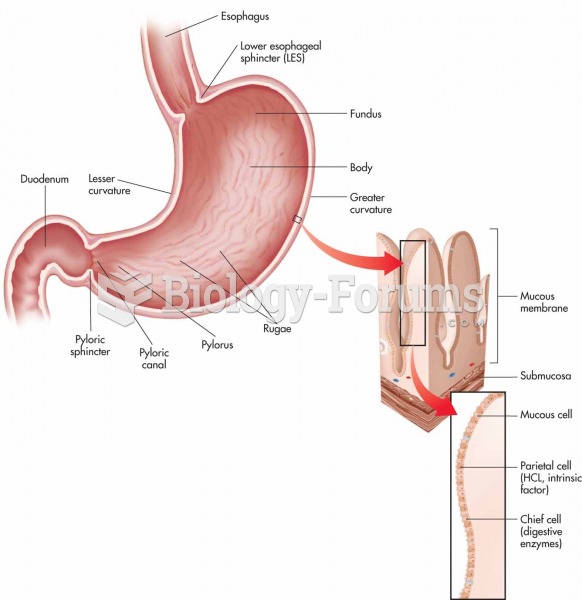|
|
|
There are approximately 3 million unintended pregnancies in the United States each year.
Approximately one in three babies in the United States is now delivered by cesarean section. The number of cesarean sections in the United States has risen 46% since 1996.
Eat fiber! A diet high in fiber can help lower cholesterol levels by as much as 10%.
Earwax has antimicrobial properties that reduce the viability of bacteria and fungus in the human ear.
Pink eye is a term that refers to conjunctivitis, which is inflammation of the thin, clear membrane (conjunctiva) over the white part of the eye (sclera). It may be triggered by a virus, bacteria, or foreign body in the eye. Antibiotic eye drops alleviate bacterial conjunctivitis, and antihistamine allergy pills or eye drops help control allergic conjunctivitis symptoms.







